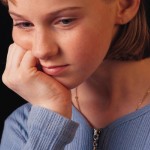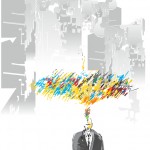Evidence has shown that when exposure and response prevention is done correctly, it has a very high success rate. Unfortunately, there are several common reasons why exposure may have suboptimal effects. These include: Response prevention strategies are not being emphasized. This occurs in cases where mental compulsions have not been
Read more →Following are discussions in response to questions and comments we frequently hear regarding treatment for OCD. We'll be happy to speak to you in more depth regarding any questions or concerns you have. _____________________________________________________
Exposure and Response Prevention (ERP), like most Cognitive-behavioral treatments, is a time-limited therapy. The objectives of the treatment are to reduce your symptoms and get your life back on track, but also for you to gain the knowledge and learn the skills you need to maintain your gains without a
Read more →Exposure and Response Prevention (ERP) is considered the most effective treatment for OCD. ERP is a specific type of Cognitive Behavioral Therapy (CBT). Standard CBT consists of a number of evidence-based strategies designed to help specific types of symptoms. However, some of these strategies (e.g., relaxation or trying to rationalize/challenge
Read more →It is essential that treatment for OCD follows the evidence-based principles practiced at The Reeds Center. When psychotherapy focuses on understanding the past to explain OCD, it is unlikely that it will help reduce or manage the symptoms effectively. Additionally, when therapy becomes about reassuring and reasoning away intrusive fears
Read more →“Pure-O” or “Pure Obsessional” is a term often found on the web and in parlance with some health care professionals. Historically it was a term that emerged to describe a subset of OCD sufferers who seemed on evaluation to have obsessions (intrusive thoughts, images, and impulses causing distress) but no
Read more →Some sufferers of OCD have read or been told that Exposure and Response Prevention (ERP) isn’t effective if you don’t have any (or very few) behavioral rituals (such as excessive hand washing, checking locks or stoves, touching/tapping/rubbing, etc.). Some clients report having no compulsions, defining themselves as “Pure Obsessional” or
Read more →




